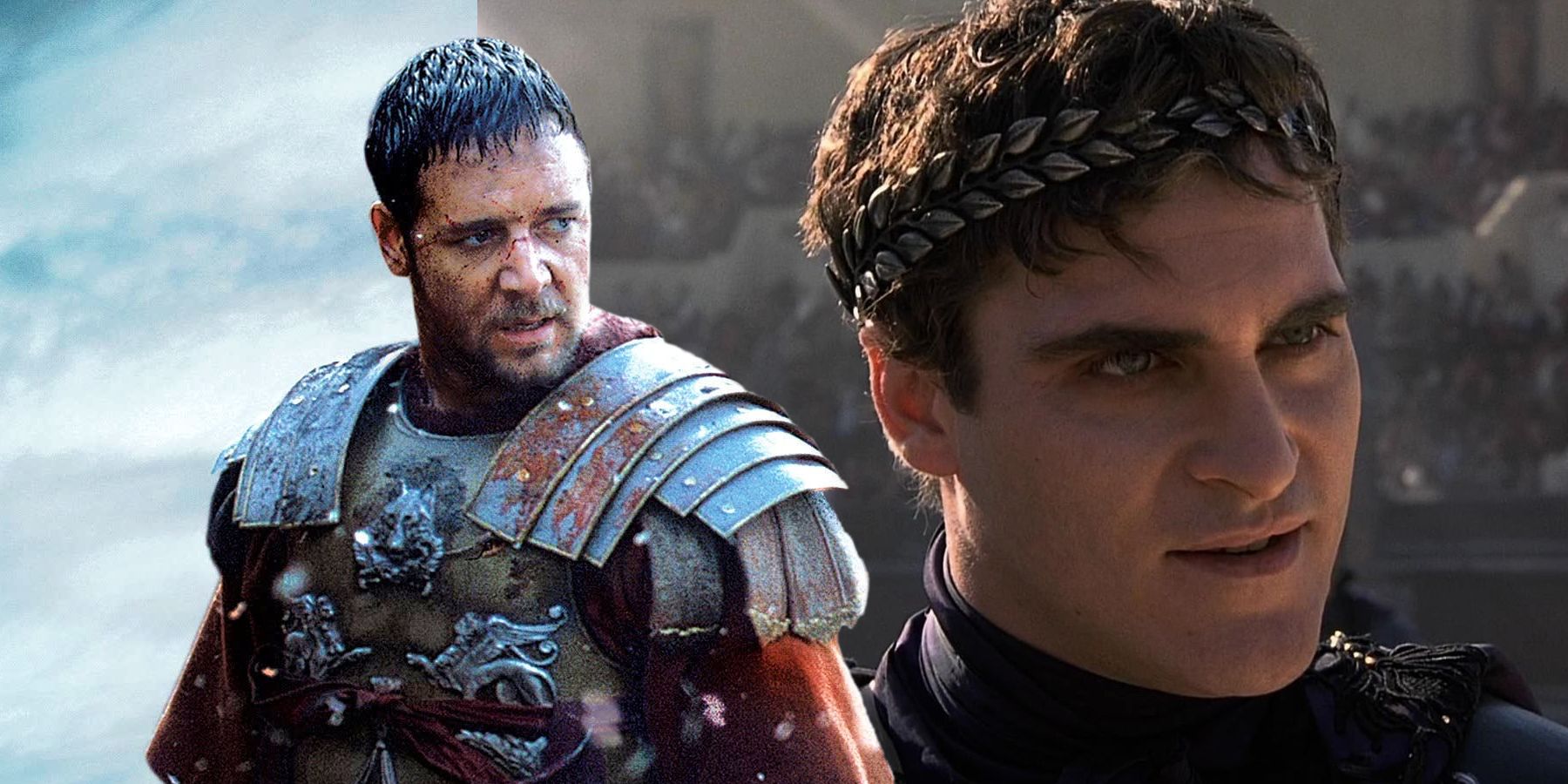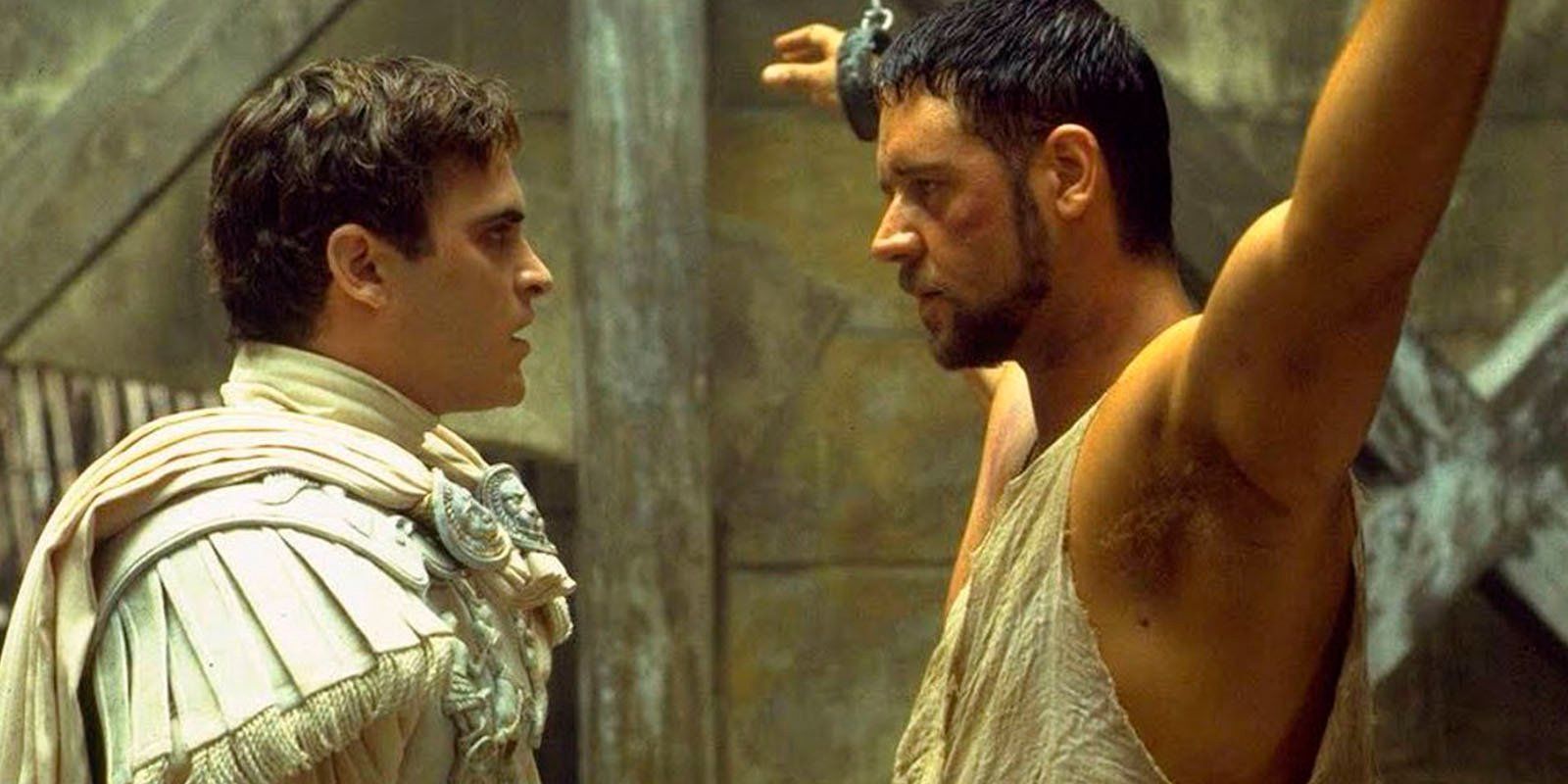Ridley Scott's Gladiator famously kills off Maximus (Russell Crowe) at the end, but the original plan for the ending was very different. The pivotal 2000 historical drama follows the betrayed general, Maximus, on a quest for revenge against Commodus (Joaquin Phoenix), the usurper emperor of Rome, who murdered his wife and son. In the dramatic climax of the film, Maximus' vengeance is finally within reach when Commodus stages a single-combat duel between them after stabbing the skilled gladiator and concealing the wound. Despite the nefarious tactics, Maximus is able to slay Commodus before succumbing to his wounds and joining his family in the afterlife.
The original screenplay, however, did not see the Gladiator movie finish with a death scene, but rather allowed Maximus to live on, having completed his quest for revenge. In an interview with Empire, Crowe revealed that the script underwent numerous major changes leading up to production, with himself and Scott making most of the rewrites. During this process, they realized that Maximus simply couldn't live past accomplishing his singular goal throughout the movie, and so the double death ending was written.
Discussing the decision to kill the lead, Russell Crowe referenced one of Gladiator's best lines, stating, "That 'My name is Maximus...' speech is basically a suicide note." He also credits Scott for saying, "This character is about one act of pure vengeance for his wife and child, and, once he’s accomplished that, what does he do?" This is perhaps the most significant realization the director could've had, and it ended up saving the movie. Gladiator kills off the titular character at the end because it's the only way to properly fulfill his character arc. Allowing Maximus to live would have left a huge void in the character's motivation and resulted in a far less satisfying conclusion for the audience.
The entire plot of the film is this one man, Maximus, battling his way back to Rome and up the ranks of combatants to seek his revenge. There are a number of side plots happening, but deep down, Maximus doesn't care about freedom and he doesn't care about the Senate; he only cares about retribution. Once that is accomplished, he has no more real motivation. All he wants is to be with his family again, and death grants him that satisfaction. Had he been allowed to live out his days, it would have been a much more hollow victory with the audience aware that the rest of Maximus' life involves nothing but empty solitude and grief.
Gladiator's perfect ending also killed any potential for a completely unnecessary sequel. Maximus' story had reached its flawless conclusion, but the film's monumental success meant studios would almost certainly smell further profit in a Gladiator franchise. The protagonist's unambiguous death at the end complicated this notion, however, and so a sequel has yet to be made. It's thanks to Crowe and Scott's last-minute change that Gladiator still stands as a masterclass in effective, single film storytelling.
Killing off Maximus at the end of Gladiator was undoubtedly the right choice, but despite the inherent complications, there are still talks of a potential sequel. To the shock and awe of many fans of the film, Australian musician and author, Nick Cave, produced an infamous Gladiator 2 script, but it was emphatically if graciously rejected by his good friend, Russell Crowe. Some masterpieces should simply be left untampered with, and Ridley Scott's Gladiator is a prime example thanks to the perfect eleventh-hour rewrite.


